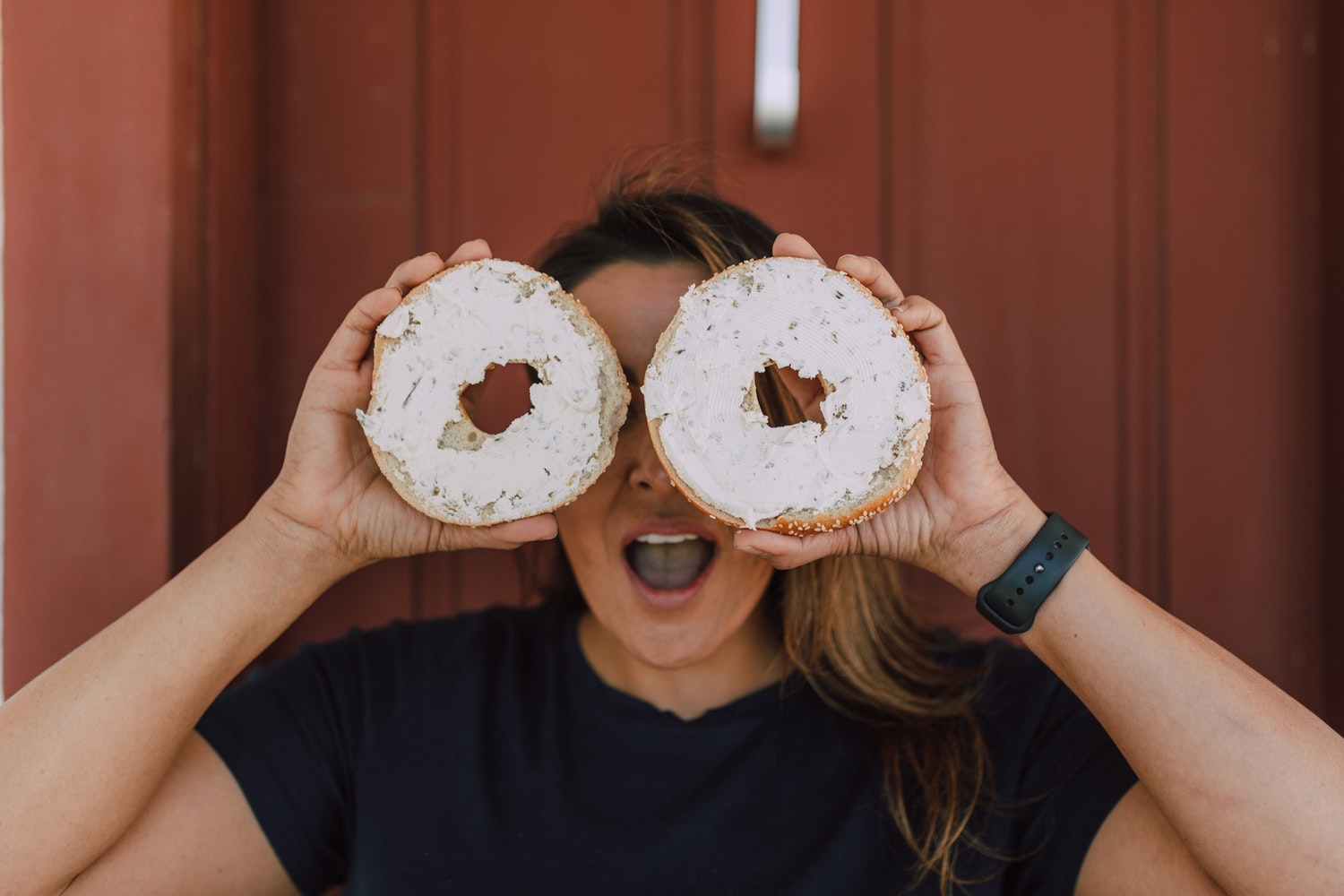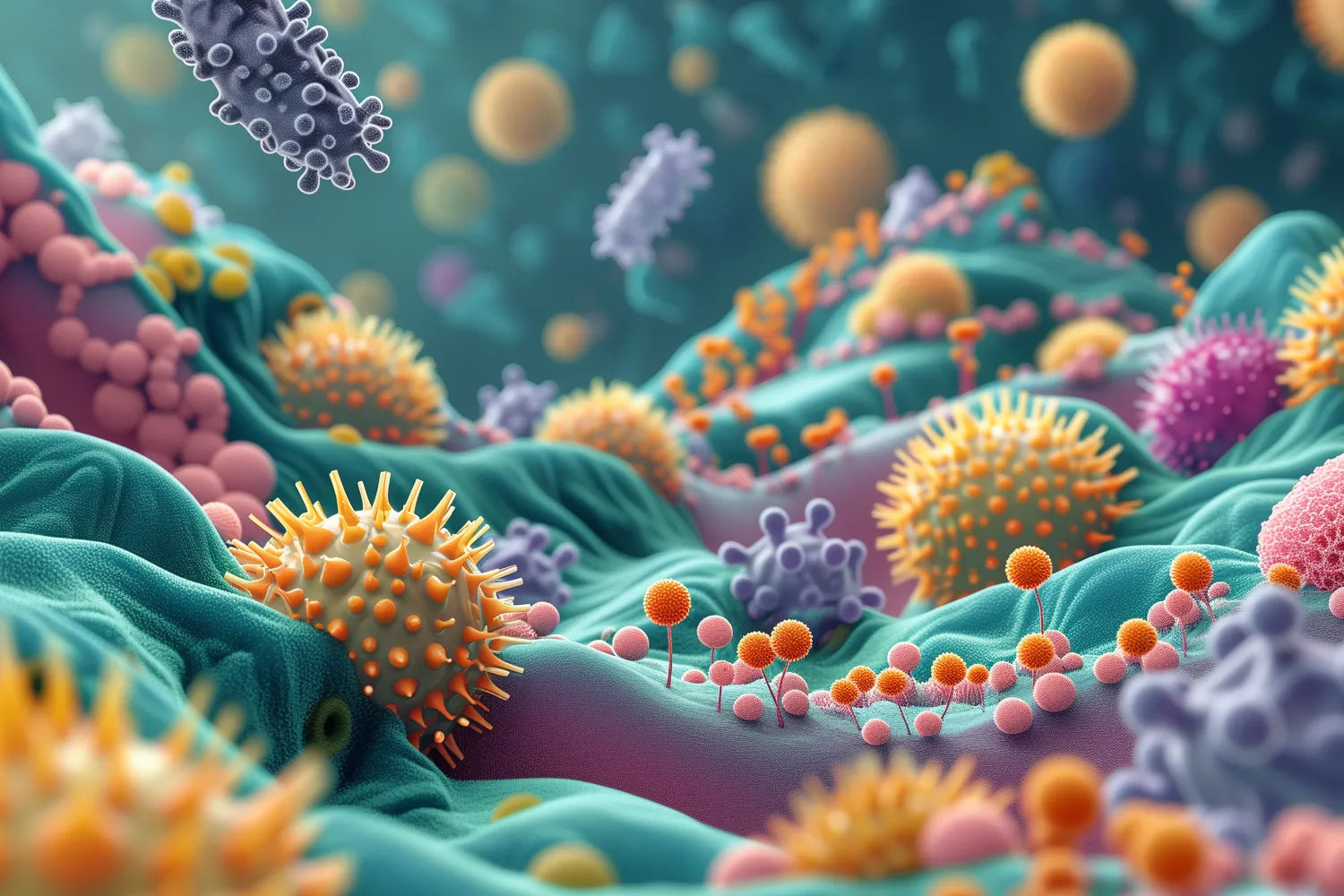
Dr. Eric Venn-Watson’s Highlights
Even if you don’t write out a laundry list of resolutions, most of us make a few mental notes on January 1 that outline what we’d like to accomplish during the coming year. For the 30+ crowd, the list almost always includes decisions about how to take better care of ourselves.
Whether you’re trying to lose a few pounds, or you’re just trying to keep up with your kids, you might be tempted to jump on the latest fad diet bandwagon. After all, your friends have tried it, your favorite social media personalities are touting it, and it seems foolproof for long term use. But, will it actually work for you?
Fad diets are fads for a reason… usually, they fizzle out when a shinier, trendier option goes viral. So, in this blog, we’ll help you understand what fad diets are, why they historically don’t work, and give you a real blueprint for how to boost your health this year.
Defining a Fad Diet
Not all fad diets are bad, and some of them may actually help you lose weight successfully while maintaining proper nutrition. Fad diets usually promise rapid weight loss with low-calorie meals, but traditionally these eating habits don’t have much scientific backing, rising in popularity through social media networks and celebrities.
Fad diets usually involve the complete removal of an entire food group, which coincidentally will remove an entire assortment of nutrients, vitamins, and minerals from your diet. You might lose weight, but the cost could be declining health and nutritional deficiencies. High-protein diets, high fat diets, and low-carb diets are among some of the most common.
Fad diets will also usually have a cult following. For instance, after the release of several popular documentaries, veganism increased by 300% in the years that followed. The Paleo Diet has been around since the 1970’s, but picked up popularity when it became the foundational diet of CrossFit athletes across the globe.
The problem is, like most fads, fad diets don’t last.
The Most Popular Fad Diets
Fad diets aren’t new. We’ve been trying them since the 1930’s. One of the earliest, The Grapefruit Diet, involved eating only grapefruit for several days, or eating it with every meal. As you’ve probably guessed, it is now defunct. Here are a few examples of fad diets that have real staying power.
The Paleo Diet
The paleo diet was developed in the 1970’s and was based on what our hunter/gatherer ancestors likely ate. This diet completely eliminates dairy, grains, and legumes, and focuses on eating lean meats like chicken, vegetables, and seasonal fruit.
Processed foods are also off the menu, so if you’re hoping to find convenience with this plan — sorry, not happening.
Intermittent Fasting
Intermittent fasting involves not eating for a specified time period, and consuming all your necessary daily calories during a specific window of time.
Intermittent fasting doesn’t require you to exclude any specific foods, like sweets, nor count calories or macronutrients. It simply requires you to fast for a certain amount of hours. There are options for fasting, with fasting times ranging from 12 hours to 18 hours.
Intermittent fasting may make you successful, but it could interfere with your social life (i.e. going out with friends for dinner after your eating window has closed), and you could also find it hard to consume your necessary caloric intake in a shorter time frame.
The Atkins Diet
Developed by a cardiologist named Robert Atkins in the 1960’s, the Atkins diet suggested a link between carbohydrates and heart disease. The Atkins diet, which is still popular today, doesn’t restrict the amount of fat you can consume and doesn’t force you to count calories. Instead, you’ll count carbohydrates.
The diet operates on a four phase cycle, where you’ll gradually build up to a higher level of carbohydrates. There have been spinoffs to the Atkins diet, like the keto diet, which virtually eliminates carbohydrates so that your body burns fat for fuel and produces ketones for energy.
Atkins was onto something, but he was a minute too late. By the 1970’s, researchers were convinced that the source of heart disease was fat, and the low-fat trend began as opposed to low-carbohydrate diets.
Low-Fat Everything
Just as Atkins was putting the finishing touches on his research, the government, who was overwhelmed by the increase in heart disease among younger men, issued dietary guidelines to the entire nation: avoid fat to avoid heart disease.
The message was clear: fat was killing us, and avoiding it would make us healthier. If you grew up in the 80’s or 90’s, you poured skim or 2% milk on your cereal and probably used some type of butter substitute on your toast.
The 90’s saw the advent of low fat snack foods; processed, boxed snacks that didn’t contain fat, but instead contained extremely high doses of sugar and other undesirable ingredients to compensate for the flavor and texture that was missing.
The problem? The simplistic conclusions of the low-fat diet didn’t work. We ended up heavier and sicker, and packed on a few more chronic illnesses.
Why Fad Diets Don’t Work
While a fad diet will allow you to lose a few pounds, there’s a few reasons why they never truly work to help you live a healthier life.
Sustainability
If you’re serious about weight loss, you’ll want a diet plan that is sustainable and works with your lifestyle. Losing ten pounds by eliminating carbohydrates from your diet might seem like a success, but are you certain you can sustain a no-carb lifestyle for more than a few months?
Additionally, the elimination of food groups in their entirety is arguably unhealthy. While cutting out carbohydrates could help you cut back on sugar, you could also eliminate the vitamins and nutrients you get from fruit.
They Don’t Focus on Movement
The key to staying healthy is combining a healthy diet with an active lifestyle. Fad diets usually focus on how much weight you can lose by just eating a certain way or avoiding certain foods.
Staying active is necessary for your heart, bones, muscles, and mental health. No matter what you’re eating, exercise is a crucial part of a healthy lifestyle. Any diet that ignores this isn’t a diet worth following.
They Lose Popularity
As individual as we may be, we love to follow a trend. It’s why skinny jeans exist. Once a diet has peaked and waned, it simply loses popularity, and along with it, much of its assumed credibility as a valid way of losing weight.
Fad diets don’t work, and one of the worst parts of following one is dealing with the aftermath of commiting to them and not being able to sustain them.
Thankfully, there’s a better option.
A Better Way to Better Health
It goes without saying, a healthy, balanced diet, and a consistent exercise routine will pay dividends into your health account. This tried and true method won’t melt away 20 pounds in a week, but over time it's the most proven option for success.
In addition, there does exist a dietary hack that can help support your dietary needs, encourage healthy weight, and place a greater distance between you and the unhealthy conditions that lead to age-related diseases — best of all, it’s science-backed by dozens of studies supporting its health benefits.
Bring Back the Fat
What we learned from the low fat trend was that it didn’t work. Both the 90’s and 00’s saw a dramatic rise in conditions like obesity, diabetes, heart disease, and liver disease, even in children.
Even our life expectancy had been on the decline.
Eliminating fat wasn’t the answer, but here’s what is.
Elevate your cells. Elevate your self.
Pentadecanoic Acid
If you’re an adult over 35 you probably take an omega-3 supplement according to dietary recommendations. Omega-3 is a fatty acid that is essential, meaning our bodies need it but can’t make it on their own.
Pentadecanoic acid, also known as C15:0, is an odd-chain, saturated fatty acid which a growing body of research indicates is also an essential fatty acid.
What it does: C15:0 supports cellular health, which in turn keeps your body as a whole healthy, helping you live a healthier life with benefits like deeper sleep, more energy, and better metabolic health. Research shows that higher circulating levels of C15:0 are associated with a lower risk of obesity, diabetes, heart disease, liver disease, and even mortality. C15:0 makes longevity our ally and gives us a chance to reverse cellular aging and live healthier, longer lives.
The results: Over time, C15:0 helps improve mood, sleep, and even appetite in just 45 days, by binding to special receptors in the body called PPARs. By 12 weeks, healthy energy levels return, and you’ll likely notice a positive change in your skin health, too. After six months of C15:0, tissue and organ function improve, which means getting your blood and cholesterol panels won’t be nearly as nerve wracking.
Unfortunately, C15:0 is found predominantly in whole-fat dairy products, and many of us don't get enough of this essential fatty acids in our diets.
Have no fear, fatty15 is here.
fatty15, The Total Health Solution
A team of scientists, researchers, and doctors developed the only supplement you need to get the benefits of C15:0 in your diet. Fatty15 is the first and only supplement to contain FA15™, the pure, vegan-friendly, version of C15:0.
Just one scientifically-backed capsule a day supports your cellular health, without any aftertaste or side effects.
This year, don’t fall for whatever fad diet is #trending — instead, make a lasting choice that supports your metabolic health from the cells up with fatty15 as your cellular health ally.
Sources:
What Is the Atkins Diet, and Is It Healthy?|Cleveland Clinic.org
Paleo diet: What is it and why is it so popular? - Mayo Clinic
Increase in Veganism: Why Is Veganism on the Rise in 2021?|Sentientmedia.org

Eric Venn-Watson M.D.
CEO, Co-Founder
Senior Scientist, Co-Founder
Eric is a physician, U.S. Navy veteran, and Co-founder and COO of Seraphina Therapeutics. Eric served over 25 years as a Navy and Marine Corps physician, working with the special forces community to improve their health and fitness. Seraphina Therapeutics is a health and wellness company dedicated to advancing global health through the discovery of essential fatty acids and micronutrient therapeutics.
You May Also Like...
10 Foods Good for Your Liver: The Ultimate Guide
Your liver does a lot for you. If it had a voice of its own, it might ask you to eat more veggies and cut back on your Old Fashioneds. Unfortunately, the liver doesn’t receive a lot of attention until...
How To Improve Your Gut Microbiome: 6 Tips
Interested in how to improve your gut microbiome? We’ve got six tips to help your gut thrive and improve your overall digestion.


